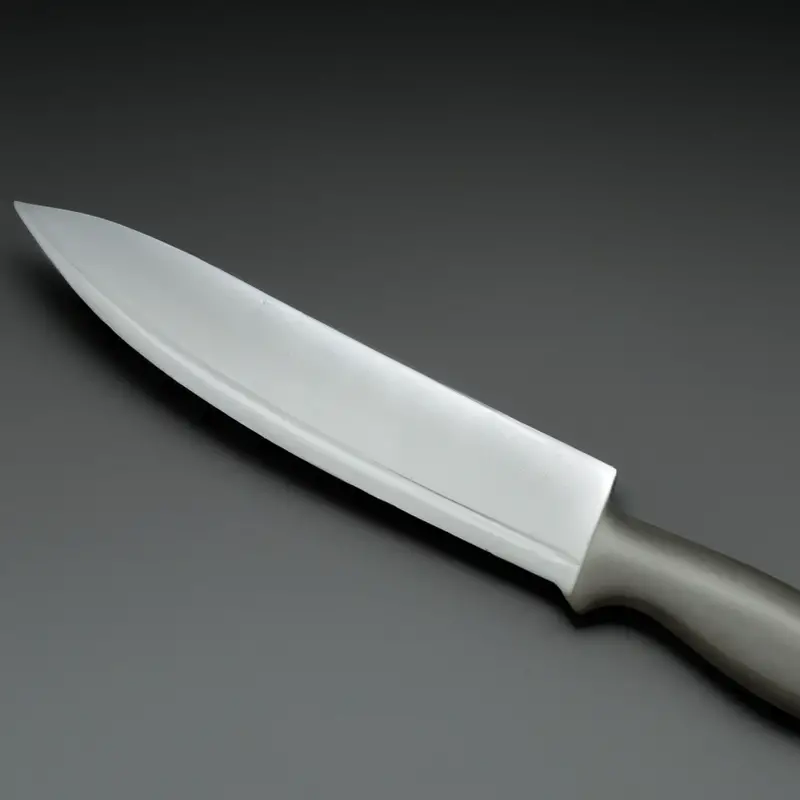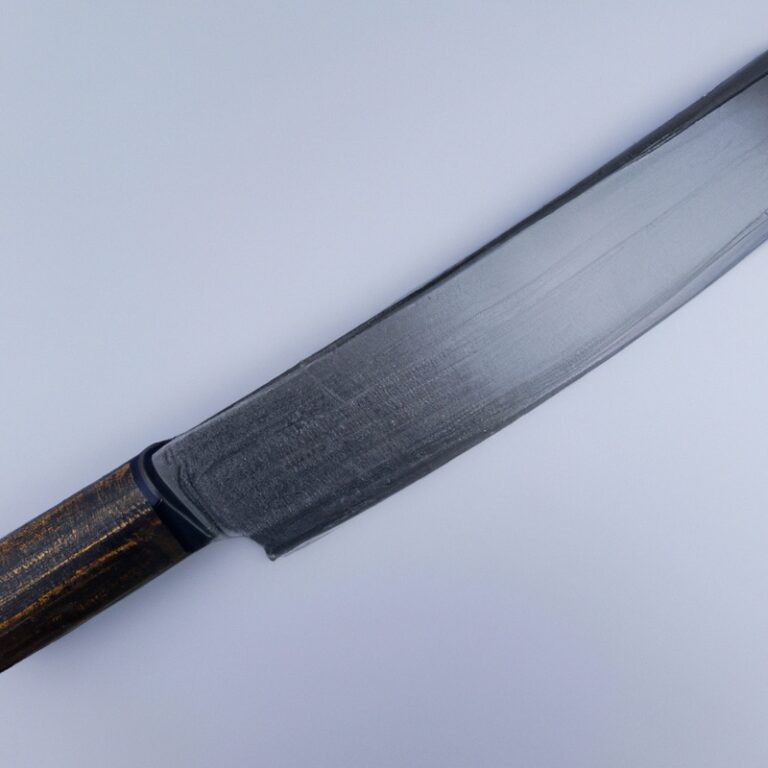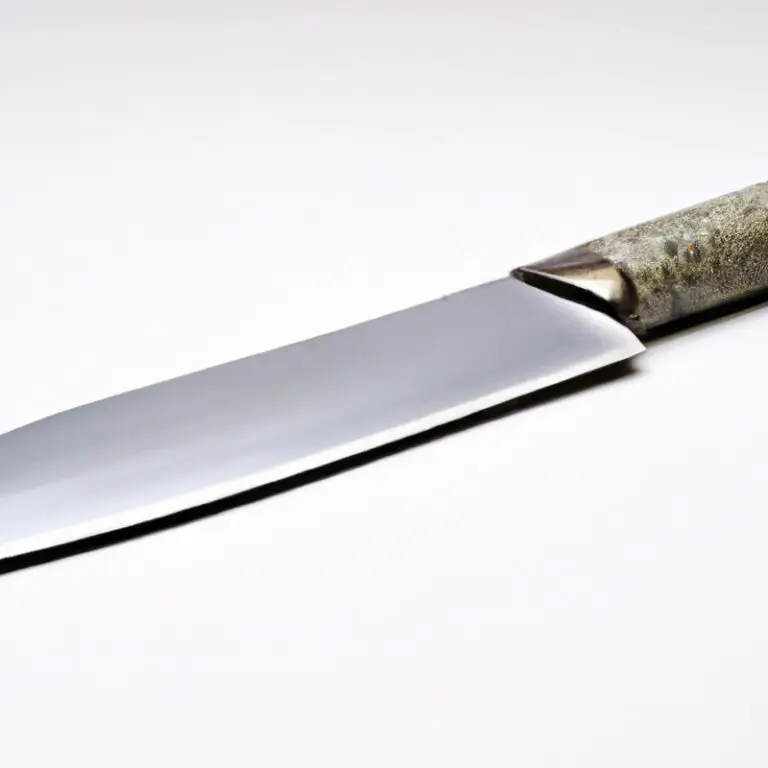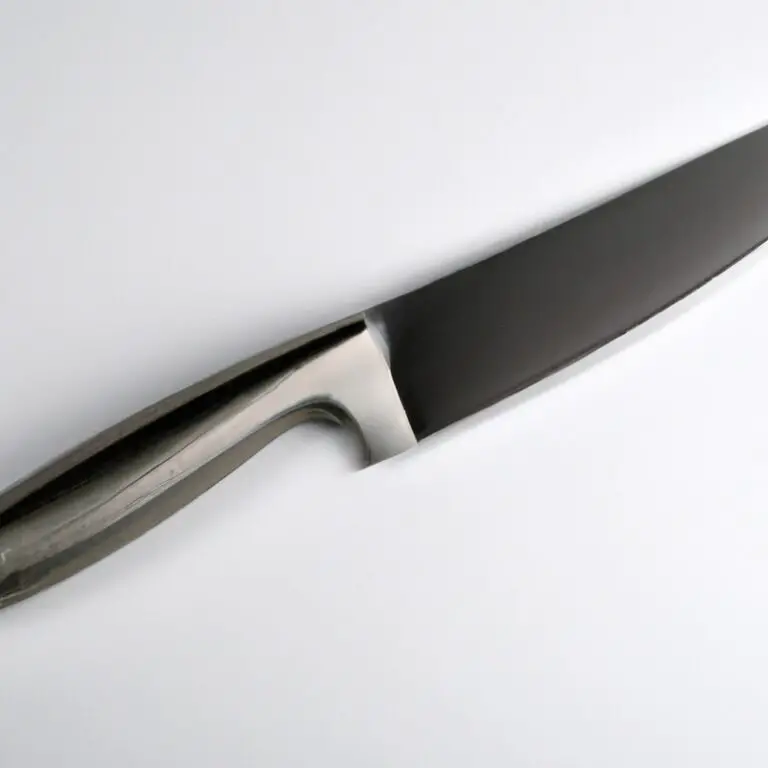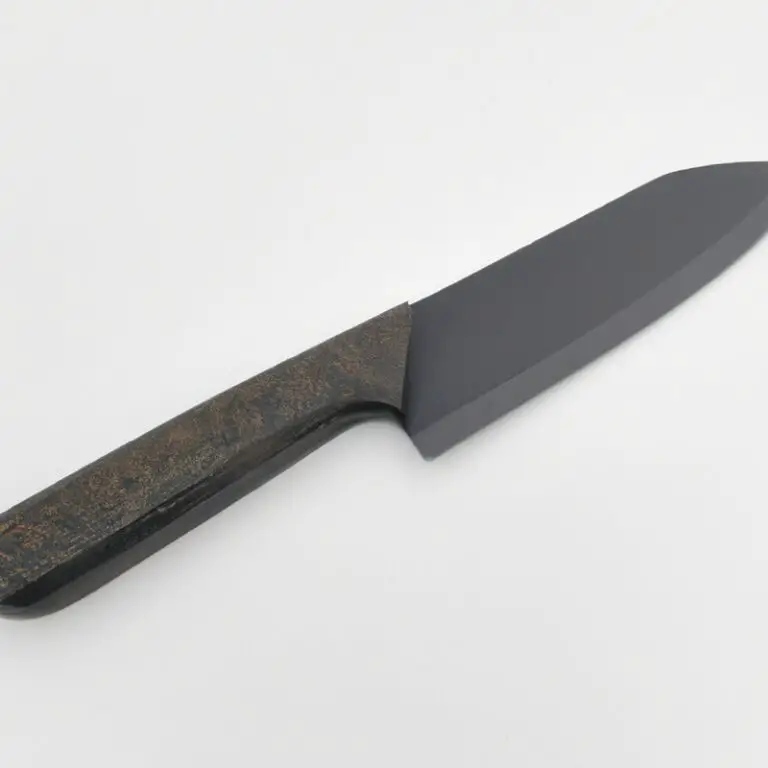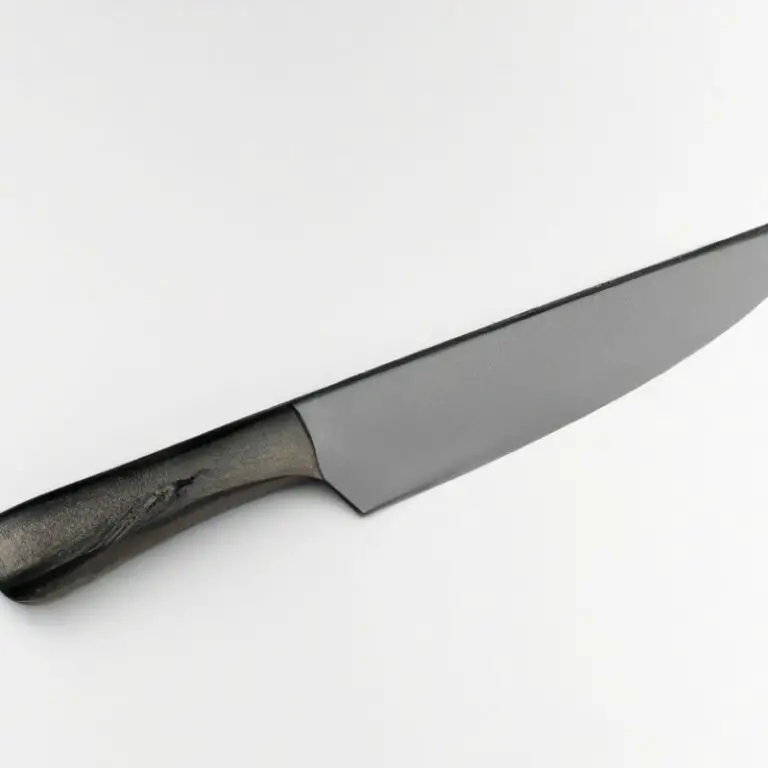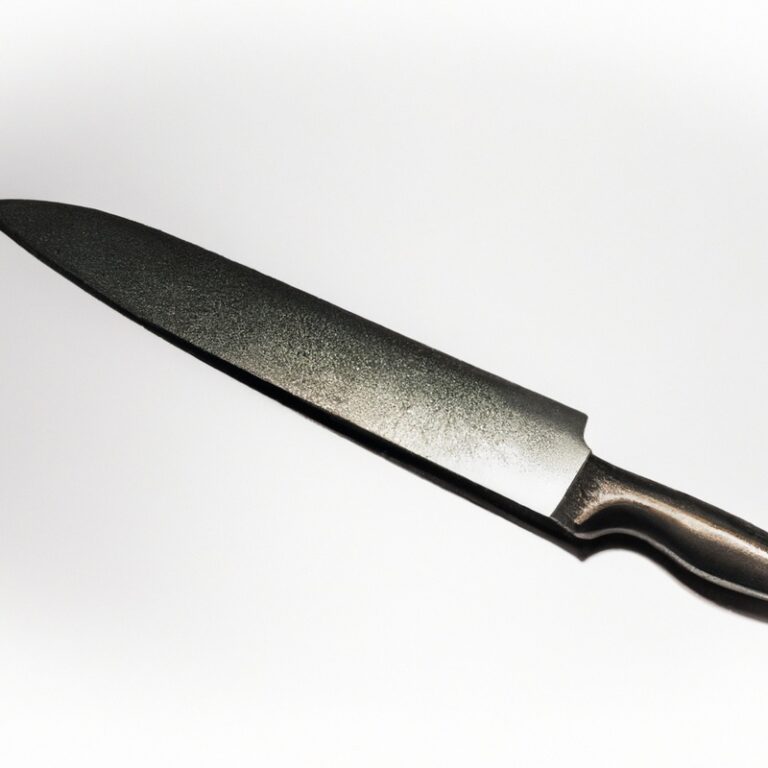How To Store a Gyuto Knife Properly? – Essential Tips
Key Takeaways:
- Clean and dry the Gyuto knife before storing it to prevent rust and corrosion.
- Use a blade guard or a wooden sheath to protect the blade from damage and ensure safety.
- Store the Gyuto knife in a cool and dry place away from other metallic objects to avoid scratches or corrosion.
- Avoid storing the Gyuto knife in a drawer or a crowded space as it may cause the blade to dull or chip.
As a chef, your Gyuto knife is your trusty companion in the kitchen. But do you know how to store it properly to keep it sharp and in top condition?
Proper storage is essential to extend the lifespan of your knife and avoid any accidents.
In this article, I’ll share with you my expertise on the importance of storing your Gyuto knife safely, the ideal temperature and humidity levels, and the materials and products you should use to protect your knife. I’ll also highlight common mistakes people make and give you tips for knife maintenance and storage options while traveling.
| Method | Description |
| Sheath | Use a protective sheath to cover the blade when not in use |
| Magnetic strip | Mount a magnetic strip on a wall or inside a kitchen cabinet to keep the knife safely stored |
| Knife block | Invest in a knife block with proper slots for your Gyuto knife and other kitchen knives |
| Drawer insert | Store the knife in a designated slot or insert in a kitchen drawer with other cooking utensils |
| Cleaning and drying | Make sure the knife is clean and completely dry before storing it to prevent rust and damage |
| Away from heat and moisture | Avoid storing the knife near heat sources or in damp areas, which can cause rust and corrosion |
Understanding the Importance of Proper Storage for Gyuto Knives
Proper storage is crucial for maintaining the quality and performance of your Gyuto knife. Storing it in a safe and secure place not only prevents the risk of injury but also ensures its longevity.
If you leave your Gyuto knife unprotected, it can easily become damaged, dull, or rusted, affecting its efficiency.
Therefore, it is essential to invest in proper storage solutions such as knife blocks, magnetic holders, or sheaths to protect the blade’s sharpness and edge. By keeping your Gyuto knife dry, clean, and away from heat, moisture, and contact with other metal objects, you can prolong its lifespan.
Remember, investing in the right storage solution can protect the integrity and sharpness of your Gyuto knife for years.
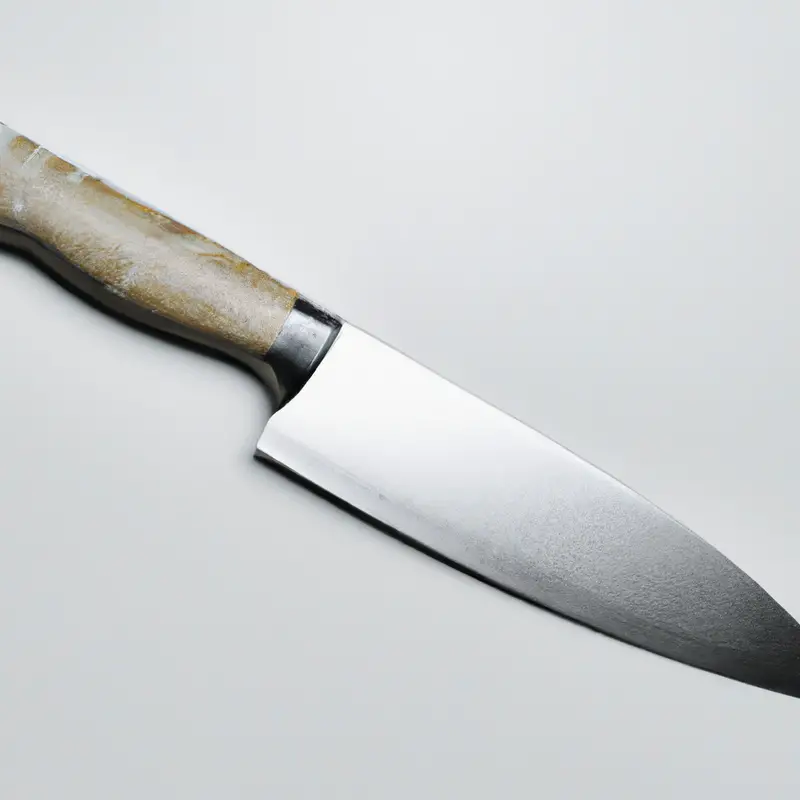
Materials and Products That Should Be Used for Safely Storing Gyuto Knives
The materials and products that should be used for safely storing Gyuto knives include:
- Magnetic knife holders: They are a great option because they keep the knife blade away from other utensils, preventing scratches and nicks.
- Knife blocks: Knife blocks provide a place for each knife to fit snugly into its own slot, keeping them from touching each other.
- Blade guards: They are plastic sleeves that cover the blade of the knife and help prevent accidental cuts when retrieving the knife from storage.
- Kitchen drawer inserts: These are a great option for those who want to keep their knives safely stored away and out of sight.
Regardless of which option you choose, ensure it is made of a material that won’t harm the blade of your Gyuto knife. Avoid storing your knife in a drawer without proper storage gear, as the knife can get easily damaged, and you can accidentally cut yourself.
The Optimal Room Temperature and Humidity Levels for Gyuto Knife Storage
The optimal room temperature for storing a Gyuto knife is between 18-22°C (64-72°F) with a humidity level of 60-70%. High or low humidity levels can cause the blade to rust or corrode, so it’s essential to check the humidity levels regularly.
If the room is too humid, consider using a dehumidifier to regulate the levels.
On the other hand, if the room is too dry, using a humidifier can help. It’s crucial to avoid extreme changes in temperature or humidity levels as sudden shifts can cause condensation to form on the blade, leading to rust, corrosion, and damage.
It’s also advisable to keep your Gyuto knife away from direct sunlight, heat sources such as stovetops, and areas with high moisture levels, such as the sink or dishwasher.
By maintaining the optimal room temperature and humidity levels, you can ensure your Gyuto knife stays sharp and free from damage for a long time.
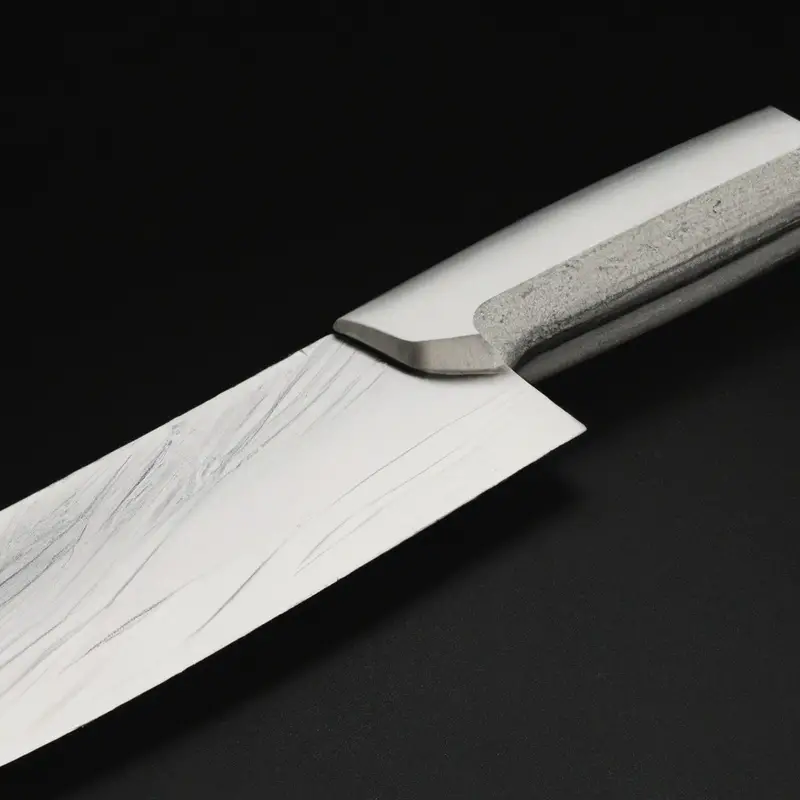
Avoiding Knives from Becoming Dull by Properly Storing Them
Proper storage is crucial for keeping your Gyuto knife sharp and in good condition. One of the main reasons knives become dull is improper storage.
Avoid storing your knife in a drawer with other utensils or in a damp area, which can cause rusting and damage to the blade.
Instead, use a knife block or a magnetic strip to keep your knife safely stored and easily accessible. Make sure your knife is clean and dry before storing it, and store it at an angle to prevent the blade from touching other objects.
Avoid storing your knife in a leather sheath for extended periods, as it can trap moisture and damage the blade.
By properly storing your Gyuto knife, you can extend its lifespan and keep it in optimal sharpened condition.
How to Clean and Dry Your Gyuto Knife Before Storing It
To properly clean and dry your Gyuto knife before storing it, start by wiping the blade with a clean, dry cloth to remove any dirt and debris. Next, use a soft-bristled brush to gently scrub the blade and handle with warm water and mild soap.
Avoid using harsh chemicals or abrasive scouring pads that can damage the blade.
After washing, rinse the knife thoroughly and dry it with a clean towel, making sure to remove all moisture from the blade and handle. Store the knife in a dry, well-ventilated place and avoid leaving it in damp or humid environments.
It’s essential to keep your Gyuto knife clean and dry to prevent rust, corrosion, and damage to the blade.
Properly cleaning and drying the knife before storage ensures that it stays in excellent condition and performs optimally every time you use it.
The Ideal Angle and Position for Storing Gyuto Knives in a Knife Block
The ideal angle for storing Gyuto knives in a knife block is by placing them with the blade facing downwards at a 45-degree angle. This angle helps to keep the knife’s edge sharp and prevent it from getting dull quickly.
Additionally, storing the knives with the blade facing downwards helps to protect the edge from contact with other surfaces that may cause damage.
It’s essential to ensure that each knife has its slot or is placed in a separate compartment to avoid contact with other knives. This way, you can prevent scratches and other forms of damage that may affect the sharpness of the blade.
In terms of positioning, knives should be stored in a vertical position to prevent the weight of the knife from damaging the blade’s edge over time.
Maintaining the knife’s vertical position also helps to prevent any unnecessary tension on the blade and handle. Overall, when storing Gyuto knives in a knife block, the ideal angle and position are placing them with the blade facing downwards at a 45-degree angle in a separate compartment or slot and in a vertical position.
Tips for Knife Maintenance When Not in Use for Extended Periods
To maintain your Gyuto knife’s longevity, proper maintenance is essential, especially when storing it for extended periods. Here are some essential tips to keep in mind:
- Apply a thin coat of oil to the blade: Doing this protects the blade from rust and corrosion during extended storage periods.
- Store knives in a dry and cool place: Avoid humid or damp places that may cause rust on the metal.
- Avoid plastic or leather sheaths: These materials can trap moisture and cause knives to rust. Instead, use a wooden or metal sheath.
- Clean and dry thoroughly before storing: Before storing the knife, clean it with soap and water, dry it thoroughly with a clean cloth, and then apply a thin coat of oil.
- Check on the knife regularly: Even when storing knives, it’s essential to check on them periodically. Especially if storing for months, it is recommended to check monthly to ensure the knife remains in good condition.
By following these tips, you can ensure that your Gyuto knife remains in excellent condition even during extended storage periods.
Prohibitions to Avoid When Storing Gyuto Knives
When it comes to storing a Gyuto knife, there are some prohibitions to avoid that can cause damage to the blade. Firstly, avoid storing your Gyuto knife with other utensils or metallic objects that could scratch or dent the blade.
Secondly, do not store your knife in the sheath for extended periods as it can cause moisture to build up and lead to corrosion.
Thirdly, avoid placing the blade facing upwards or downwards in a magnetic strip as it can cause the blade to become dull. Finally, do not expose your knife to extreme temperatures or humidity levels as it can cause rust or damage the handle.
By avoiding these prohibitions, you can prolong the lifespan of your Gyuto knife and ensure it stays sharp and safe to use.
Common Mistakes People Make While Storing Gyuto Knives
Common Mistakes People Make While Storing Gyuto Knives:
- Storing the gyuto knife with other utensils in a drawer.
- Storing the gyuto knife in a sheath, especially a damp one.
- Not cleaning and drying the knife before storing it.
- Placing the gyuto knife in contact with hard surfaces or other knives, leading to dents and scratches.
- Failing to maintain the knife’s edge by storing it at the wrong angle or in the wrong position.
To ensure that your Gyuto knife retains its sharpness and smoothness for an extended period, avoid these mistakes.
The Best Storage Options for Gyuto Knives While Travelling
When travelling with your Gyuto knife, it is essential to prioritize its safety to avoid damage and accidents. The ideal storage option for your Gyuto knife while travelling is a knife roll or knife case with individual pockets for each knife.
This storage option ensures that the blades of your knives don’t come in contact with each other, preventing scratches and dullness.
Another great storage option for travelling with your Gyuto knife is a magnetic knife guard. This guard has a magnetic strip that provides a secure and firm hold on the knife’s blade, preventing it from slipping or moving around.
However, ensure the knife guard is well padded to avoid damage to your knife’s delicate edge.
When making your travel arrangements, consider packing your knives in your checked luggage, as carrying them in your hand luggage may attract suspicion from airport security. Lastly, avoid storing your Gyuto knife loosely in your backpack or luggage as this can damage the blade edge.
Proper and secure storage of your Gyuto knife is key to safeguarding its longevity and ensuring it remains sharp and safe while you travel.
Final Verdict
Storing your Gyuto knife properly is crucial for maintaining its sharpness and longevity. By using the proper materials and products, maintaining optimal room temperature and humidity levels, cleaning and drying your knife before storing, and avoiding common mistakes, you can ensure that your knife remains in top condition for years to come.
Proper knife storage is not only a matter of convenience, but it’s also a safety measure.
So, ensure you store your knife in the right way to avoid problems. By following the tips and techniques outlined in this article, you can store your Gyuto knife like a pro and enjoy its performance and durability for many more years to come.
Remember, your Gyuto knife is an investment, and the right storage is an essential part of keeping it working at its best.

